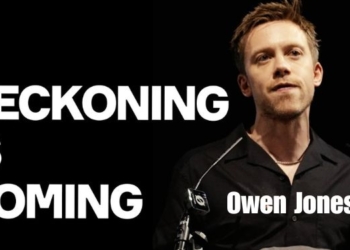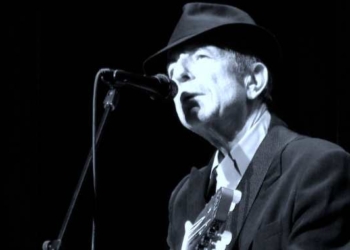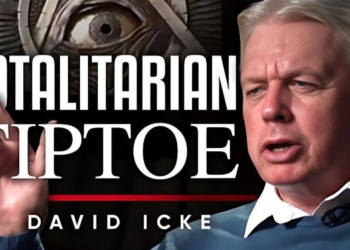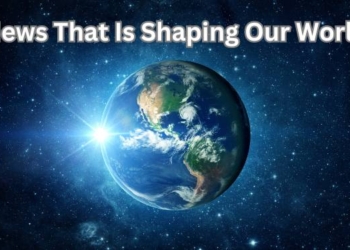
By Jeremy Adam Smith, Elise Proulx, Jill Suttie, Emiliana R. Simon-Thomas, Amy L. Eva, Maryam Abdullah, Alicia Crawford, Andrea Collier, Zaid Jilani | Greater Good Magazine
This year’s Oscar nominees for Best Picture tend to emphasize the worst in humanity. For example, Joker is about descent into homicidal madness. Jojo Rabbit is about one of the worst events in human history, the Nazi Holocaust. 1917 is about another catastrophe, World War One.
In each of those films, however, we can still find elements of humanity’s best qualities: heroism, growth, fortitude, and more.
Those qualities are the focus of our own list of this year’s Greater Goodies, our awards for films that reveal human strengths and virtues—although even these have some dystopian elements. Homelessness defines America in The Last Black Man in San Francisco. We discover marriage through a divorce in Marriage Story. For Sama, love is forged in the crucible of violence; you could say something similar about Harriet or even Star Wars: The Rise of Skywalker.
In many of these films, the best and the worst are fighting for dominance in a complicated world. They all ask us, the audience, to decide which side best represents who we are and what we want to become.
The Kindness Award: A Beautiful Day in the Neighborhood
As the movie A Beautiful Day in the Neighborhood illustrates, the children’s TV host Mister Rogers was on a mission. He wanted to teach children that they mattered, their difficult emotions could be managed, and they should treat others and themselves with kindness and compassion—a message that still resonates today, as much for adults as for kids.
Based on a true incident, in the movie Esquire magazine asks journalist Lloyd Vogel (Matthew Rhys) to write a profile of Mister Rogers (played beautifully by Tom Hanks). Though reluctant to do a “puff piece,” Vogel arrives on set to interview Rogers only to discover that the TV host moves at his own pace, taking his time with every person he encounters and giving them his undivided attention.
At first annoyed, Vogel soon discovers that authentic kindness is Rogers’s superpower, transforming the people around him. “I think the best thing we can do is to let people know that each one of them is precious,” Rogers tells Vogel at one point in the film—a message Vogel himself needs to hear.
As Vogel gets to know Rogers, the film explores his troubled relationship with his estranged father. When they run into each other at a wedding, Vogel cannot let go of the rage he feels at his father for having abandoned him as a child. Vogel’s path to forgiveness—fueled by his interactions with Mister Rogers—is at the heart of this very moving, inspirational film. —Jill Suttie
The Community Award: The Boy Who Harnessed the Wind
Real-life William Kamkwamba was only 13 years old when a combination of flooding and drought led to a very long hungry season in Malawi. In the film based on his story, The Boy Who Harnessed the Wind, William’s family cannot afford to continue paying for his school. But, William, an inquisitive tinkerer, sneaks back into school after the headmaster forbids him to return until his fees are paid. William is intrigued by his science teacher’s bicycle light that shines upon pedaling and he wins permission from the librarian for him to continue using the school’s library. As William teaches himself about electricity, his country sinks into famine—and his family endures profound loss.
“Even if they prayed for rain, the ancestors survived because they stayed together,” William’s mother says at school. “When do we stay together, Mr. Headmaster?” In this story, the social connection makes hope possible. Because of William’s bond with his science teacher, school librarian, family, friends, and fellow villagers, he stays hopeful—and gradually realizes the potential of his ingenuity, as he discovers how wind energy can bring water to his village and save them from perishing.
While highlighting the grim realities of water scarcity that are pervasive throughout much of the world, The Boy Who Harnessed the Wind also illuminates the cultural beauty and richness of Malawi, where members of the indigenous religions, Christians, and Muslims live together and honor each other. It provides a strong message that, in large part, strong ties with one another nurture hope and make flourishing possible. —Maryam Abdullah
The Bridging Differences Award: The Farewell
In The Farewell, a first-generation Chinese immigrant named Billi (played by the rapper Awkwafina) learns that her beloved Chinese grandmother and family matriarch, Nai-Nai (Zhao Shuzhen), is dying. Billi wants to visit Nai-Nai in China for the last time and say goodbye.
But, as she soon discovers, the rest of her family has other plans. They believe it’s best not to tell Nai-Nai about her illness and, instead, to pretend that nothing is wrong. It’s been decided that the whole family will go to China, but on the pretext of attending a relative’s wedding, so there can be a family reunion for Nai-Nai couched within an otherwise happy occasion.
Based somewhat on the real experience of the filmmaker, Lulu Wang, the movie explores how cultural views can collide around what it means to be kind. On the one hand, those who are closer culturally to China—Billi’s parents, for example—believe it is kinder to keep her illness a secret and to simply make her happy with a family get together. Billi, who identifies more with American culture, believes that it’s kinder to tell Nai-Nai the truth so that she can say goodbye on her own terms. Conflicts ensue—but, ultimately, this is a tale of love and how it can be expressed differently by different people.
Part of the joy of watching the film is seeing Billi rediscover her roots—the food, family, and culture of China. But, as we see in the film, she also gains perspective on why her parents left China to live in the United States, as well as empathy for their struggles in living so far away from their families. It’s an affecting portrait of the opportunities and the price of immigrating.
At the same time, Nai-Nai’s positive outlook is infectious, and we can’t help but admire her quiet wisdom. “Life is not just about what you do,” she tells Billi. “It’s more about how you do it.” She reminds her—and us—of the importance of living fully and telling our loved ones our truths…before it’s too late. —Jill Suttie
The Love Award: For Sama
For Sama juxtaposes seemingly impossible images and sounds. In an early scene, a mother sings a playful song to her baby as a bomb strikes thunderously close to their home.
This was an everyday occurrence for Waad al-Kataeb, a citizen journalist, and Sama, her baby daughter—and for the countless families who lived in Aleppo, Syria, in 2016. This documentary is Waad’s love letter to her daughter, Sama. “Her name means the sky,” Waad explains. “The sky we love…without bombing. Sky with the sun, with clouds, with birds.” Waad fears to lose Sama every day and strives to give her daughter what childhood she can.
But Aleppo’s reality tinges this love letter with profound sorrow. “Sama, you’re the most beautiful thing in our lives,” Waad says. “But what a life I’ve brought you into. You didn’t choose this. Will you ever forgive me?”
Despite the neverending siege in which For Sama is set, love emanates from the scene after scene. Waad falling in love and marrying Hamza, a young doctor. Waad celebrating new love when the two lines on her pregnancy stick test confirm she is expecting. Waad and Hamza’s love for their people that is at the heart of their conviction to remain in their beloved Aleppo. Hamza’s love as he leads the effort to create a makeshift hospital after the ones in the city are destroyed so he can attend to the numerous injured every day during the war.
And it’s love that drives Waad to capture with her camera what this war means for her family, neighbors, and the world. Sama asks people outside of Syria to expand their own capacity for love—and to ask ourselves whether we can do anything to alleviate the suffering of an ongoing war. —Maryam Abdullah
The Fierceness Award: Harriet
As a young Black girl, I was taught that Harriet Tubman brought slaves to freedom before and during the Civil War. For many, she is a footnote in Black History, known as a stubborn-looking middle-aged woman in a black-and-white picture.
The movie Harriet puts her life at the epicenter of American history—and it reminds us that the decision to take no more is a power like no other. In this movie, starring Cynthia Erivo (who is Oscar-nominated for lead actress and best song), Harriet Tubman comes to life with unflinching fierceness and determination.
Through Harriet, I learned so much about Tubman. We see the fire inside of a young Harriet, who understands what it is to be free above all. She was just one slave, one single woman, who was willing to put it all on the line and pay the ultimate cost of freedom for herself and her family—and who kept coming back to free hundreds of other slaves, after she could have lived a safer, more comfortable life. In every scene, Harriet is a superheroine, a real-life action figure who never took “NO” for an answer.
She even has a few superpowers that help her in her quest. After sustaining a head injury as a teen, at the hands of the plantation overseer, she starts “speaking to God” and having visions that guide her out of danger during her travels through the Underground Railroad, ushering slaves some 13 times through the dangerous route to freedom.
But her real superpower is simple fortitude and fierceness. There is a moment in the movie when she looks in the eye of her former master as she is just about to be captured. “I will live free or die,” she tells him—and we know she means it. Each and every frame of this film speaks to the high cost she gladly paid to be free.
After leaving the Underground Railroad movement we see Tubman, carrying a rifle, leading black troops in the Union army with the same intent and fierceness she displayed in ushering slaves to freedom. We’ve seldom seen such ferocity on-screen—and Hollywood has never shined a light on a historical Black female superhero like Harriet. —Andrea King Collier

The Perseverance Award: Just Mercy
Imagine driving home after a long workday and seeing the flashing lights of a police blockade ahead. A line of officers awaits your arrival—with guns pointed at you. So begins Walter McMillian’s story in the film Just Mercy.
The police arrest McMillian (Jamie Foxx) on the spot. He is wrongly convicted of murder and sentenced to death based on the coerced false testimony of a career criminal. Soon attorney Bryan Stevenson (Michael B. Jordan) comes to McMillian’s prison to talk about representing him. Through their two stories, the film—based on the memoir by the real-life Stevenson—depicts human lives stripped of dignity, breathing life into the statistics about unfair convictions (i.e., for every nine death-row inmates executed, one is exonerated).
Though the film forces us to experience the racist insularity of a criminal “justice” system where facts and evidence genuinely don’t matter, we also find hope in the perseverance and courage of Stevenson and his team. Stevenson won’t give up on McMillian, despite threats and warnings—and his diligence is inspiring.
At a time when many of us face our own sense of cynicism and demoralization in light of political and racial injustice around the globe, it’s important to remember that human dignity, tenacity, and hope can prevail. After over 30 years of steadfast advocacy work, the real-life Stevenson and his team at the Equal Justice Initiative have saved over 135 other men from the death penalty.
As Stevenson so eloquently states in the movie, “I’ve learned that each of us is more than the worst thing that we’ve ever done. That the opposite of poverty isn’t wealth. The opposite of poverty is justice.” —Amy L. Eva
The Self-Awareness Award: The Last Black Man in San Francisco
There’s a story at the heart of this tender, elegiac, observant film. I can’t tell you what that story is, precisely, because I don’t want to give away too much. It’s a story about who the main character, Jimmie Fails (played by Jimmie Fails), is, and it’s about where he belongs.
At the start of The Last Black Man in San Francisco, Jimmie thinks he knows where that story begins, and he thinks he knows the middle; on the surface, the movie is about how Jimmie works toward a specific happy ending.
But Jimmie’s story is not the movie’s story. In fact, it’s the difference between those two stories that generate the movie’s profound meaning.
It’s Jimmie’s best friend Mont (Jonathan Majors) who bridges the gap. Mont is an artist; he writes plays. And one play he writes—titled “The Last Black Man in San Francisco”—reveals to Jimmie why the story he’d been living isn’t good enough because it isn’t true. Jimmie allowed himself to become entrained by someone else’s story. To fulfill his potential, Jimmie needs to create his own story.
In short, Jimmie needs to become more self-aware. And he does, in The Last Black Man in San Francisco. Though the movie depicts one young man’s journey into self-knowledge, it gently asks all of us to wake the hell up. The film has a vividly sociological consciousness, a sense of social structures shaping individual lives. It makes visible the forces that have made Jimmie who he is, determining his possibilities. The question it asks is this: How do we as individuals make a place for ourselves in a society determined to take those places away? There’s a sadness in the film’s answer that is almost unbearable. – Jeremy Adam Smith
The Purpose Award: Little Women
Louisa May Alcott’s Civil War-era novel Little Women has inspired seven different film adaptations. It also inspired me to desperately want to be the flawed protagonist Jo March when I was in grade school. I even tried to write my own dramatic version of the novel but gave up when I realized what a daunting task it would be to get the spirit of the book perfectly right.
Fortunately, director Greta Gerwig is made of sterner stuff than I was in fifth grade.
Her version of Little Women goes back to the original text, along with author Alcott’s letters, to uncover moments of fierce determination and even anger. “I’m angry nearly every day of my life,” says Jo’s mother, Marmee, who in previous film versions was a bland and benevolent character who keeps her girls to the high and narrow. In this one, Marmee funnels her anger into a sense of purpose: she volunteers with the abolitionists; she brings aid and sustenance to those poorer than herself; she pulls her naughtiest child, Amy, from school when the teacher uses corporal punishment on her. She models fierce purpose for her children, especially Jo, whose biggest battle in life is against her own flaws of pride and temper.
The lesson in purpose sticks. When Jo inherits a mansion from her stodgy Aunt March, who believes a woman’s worth lies in the man she can marry, she tells her sisters she wants to do something that will make her aunt turn in her grave: turn the house into a school to serve the next generation. And she does. – Elise Proulx
The Resilience Award: Marriage Story
In Marriage Story, a stage director and an actress go through a divorce. It’s not a particularly bad divorce; it’s not very good, either. It’s a regular sort of divorce. It sucks, but—spoiler alert—no one dies.
Even so, I’ve heard many critics (especially in my Facebook feed!) complain that the smart, creative, attractive characters aren’t relatable to ordinary people who have been through a divorce. I think that’s both true and false.
In Marriage Story, director Noah Baumbach casts actors who have starred in international blockbusters (e.g., Scarlett Johansson in the Avengers movies and Adam Driver in Star Wars) and he then determinedly de-glamorizes them. Driver’s shirt comes half untucked; Johansson quite often seems like any frustrated mom. Onstage, the characters are both stars. Offstage, they worry about money and say foolish things in the heat of an argument, just like you and me. It’s all very ordinary, and I believe that’s the point Baumbach is trying to make in this film. It doesn’t matter how beautiful or famous you are. At the end of the day, we’re all just doing our best—and quite often failing.
Like almost all of Baumbach’s mature films—starting with The Squid and the Whale (2005)—Marriage Story feels like autobiographical real life. Parts of it are very raw; this is a film that frequently makes you cringe. These are basically decent people who have made mistakes. They say and do shitty things as their marriage dissolves.
What happens to these two after their marriage fails? Another spoiler: They’re not defined by their mistakes. Life goes on. Their wounds heal. Their careers continue. Driver’s character keeps going the way he had been, Johansson’s character seems to flourish, and their son gets happier. They remain a family, even after the parents stop living together.
In short, the divorce is a blow but the family recovers. In my experience, that’s a far more typical and realistic marriage story than the apocalyptic alternatives we see in so many other movies. There is no evil in Marriage Story—though, for most of the film, it’s hard to see the goodness in these characters. It takes time for the goodness to become visible again. Time, and persistence. —Jeremy Adam Smith
The Forgiveness Award: Pain and Glory
Salvador Mallo is a once-famous film director who now suffers excruciating back pain, constant heartbreak, and emotional estrangement from his mother. He’s still livid from a 32-year-long feud with an actor he once directed. He’s lost the desire to make new films. Pain and Glory is the story of how Salvador learns to forgive himself and others for their failures and shortcomings—and in doing so re-discovers his drive and creativity.
In a series of scenes that move fluidly between his past and his present, forgiveness starts with his body. After years of opioids for his pain, Salvador experiments with heroin, then finally forgives his body of its many misgivings and pursues treatments to alleviate some of his discomforts. As that process unfolds, he forgives himself for not being the son he’d hoped to be to his mother. Salvador’s missing lover returns briefly for a scene of subtly written and poignantly acted mutual forgiveness between the two, grey-bearded characters. But the most moving scenes involve his friend, the actor Alberto. It’s through their reconciliation that the once-defeated Salvador returns to his craft.
The film invites us to consider the ripple effect of forgiveness, as Salvador learns to acknowledge the truth of his emotional pain. As a result of that honesty, he frees himself (and others in his life) from things like needless anger, prolonged distrust, and excessive self-judgment. Once on the other side of forgiveness, he’s able to move forward with both a liberated spirit and a deepened compassion for the sorrow of others. —Alicia Crawford
The Intergroup Empathy Award: Parasite
You probably have strong feelings about the rich and the poor. Perhaps you think that the poor simply don’t work hard enough… or maybe you believe the very rich simply refuse to share their wealth and opportunities.
Parasite breaks those dichotomies down and makes us think again about what the poor and the rich might have in common. South Korean director Bong Joon-ho deftly using the fate of two South Korean families, one very rich and another very poor, to demonstrate how the two sides are pitted against each other in capitalist societies.
Joon-ho’s film is about anxiety on both sides of the class divide, with the poor Kims worrying themselves to death about keeping a roof over their heads and the wealthy Parks fretting over the private tutors they need to hire to make retain their family’s status as one of South Korea’s elite. Unlike Snowpiercer—an earlier film from Joon-ho about class warfare—Parasite asks us to sympathize with both sides of the equation, using equal parts comedy and drama to relay the director’s social commentary.
Ultimately, the film suggests to the audience that when we set up an economic system where people are forced into a vicious, zero-sum conflict, we shouldn’t be surprised when they start to play dirty. That might not sound like the most hopeful message—but it is a warning to those who think inequality is a good thing. Our salvation lies in empathy and cooperation, not fighting for scraps. – Zaid Jilani
The Compassionate Heroism Award: The Rise of Skywalker
What do heroes look like in blockbuster action flicks? They’re mostly superheroes who duke it out to ultimately kill superpowered pathological villains. That’s not the case in this year’s new Star Wars movie. Sure, the main protagonist Rey (played by Daisy Ridley) can indeed slice up villains with her lightsaber. In Rise of Skywalker, however, she offers an alternative to violence: compassionate action.
At one point the “good guys” (including one woman) sink through quicksand into a dark underground dirt-maze and are quickly confronted by a giant hissing fanged serpent. In a more typical movie, our heroes would just kill the monster. But in this one, Rey signals her team to stand down, puts her weapon away, and employs a new power: Force Healing. She locks eyes with the monster and tenderly places her hand on a bloody clawed gash. The wound heals and the monster slithers away…in gratitude?
Later in the movie, she uses the Force again to heal her love-hate adversary, Kylo Ren (Adam Driver), of a fatal wound—a compassionate act that (spoiler alert!) turns him away from the Dark Side. Later, Kylo Ren returns the favor. Having once used the Force to kill people, he now turns it to bringing Rey back to life.

While the idea that heroes are people who kill all the bad guys is entertaining, it puts being a hero out of reach for most of us. Compassion, however, is something we all can do, and the good news is that it doesn’t actually require magical superpowers. We, humans, are innately driven to nurture others’ pain and suffering and are enlivened by lending support. Ultimately, compassionate action is a way more realistic, and effective, strategy for real-life heroism. —Emiliana Simon-Thomas
What films did you see during the past year that inspired you?
About the Authors
















![Who Is Bobby Kennedy? [30-Minute Film on RFK Jr.’s Life, Narrated by Woody Harrelson]](https://consciouslifenews.com/wp-content/uploads/2024/05/who-is-bobby-kennedy-350x250.jpg)








